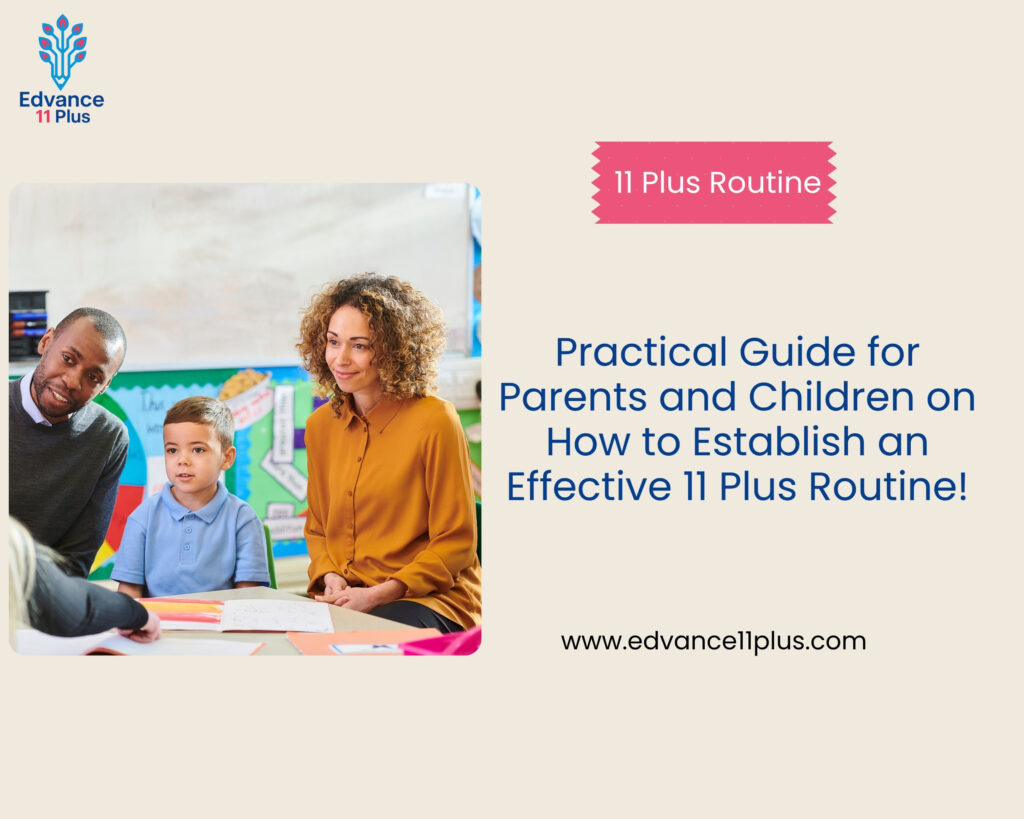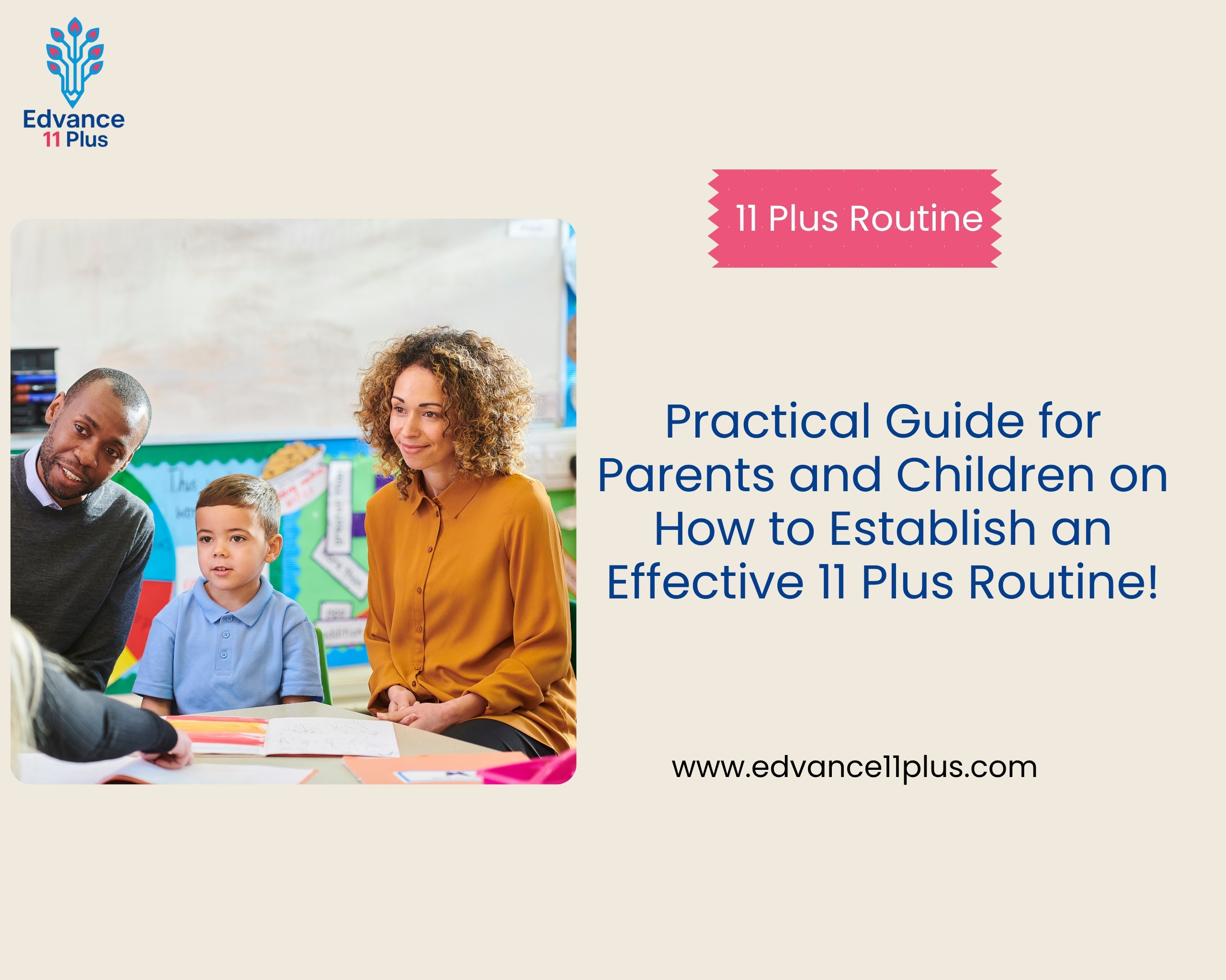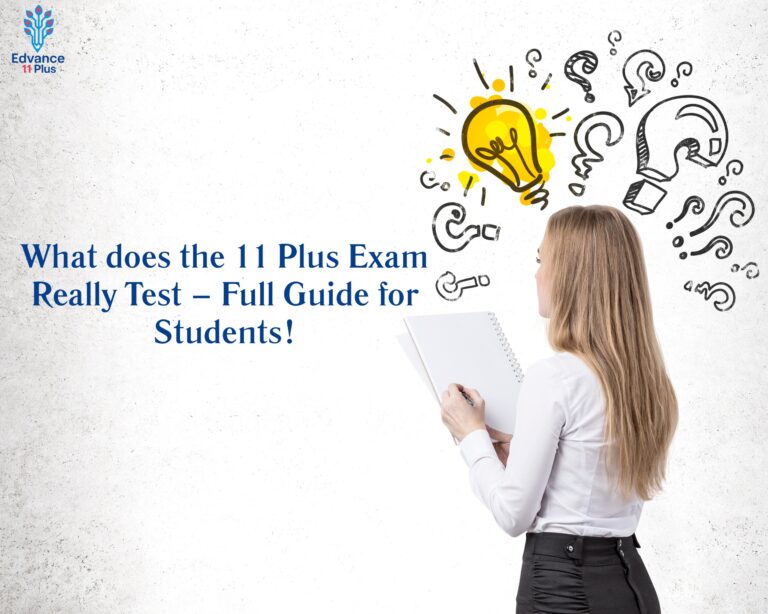Practical Guide for Parents and Children on How to Establish an Effective 11 Plus Routine!
Creating an effective 11 Plus study routine at home is key to steady progress and long-term confidence. A good routine supports discipline, reduces stress, and ensures full coverage of the 11+ syllabus across English, Maths, Verbal Reasoning, and Non-Verbal Reasoning.
Practical Guide for Parents and Children on How to Establish an Effective 11 Plus Routine!

🧭 Why a Study Routine Matters
Builds good learning habits
It helps avoid last-minute cramming.
Balances study with rest and play
Covers all subject areas systematically
🕰 Step-by-Step: How to Build an 11+ Study Routine at Home
- Know the Syllabus and Key Skills
Identify which subjects are tested in your local 11+ schools. Most children need to cover the following:
English: comprehension, vocabulary, grammar, punctuation, spelling
Maths: arithmetic, problem-solving, word problems, data
Verbal Reasoning: word patterns, logic, codes
Non-Verbal Reasoning: visual patterns, sequences, spatial awareness
🔍 Tip: Aim for mastery over memorization – focus on understanding.
- Set a Realistic Weekly Schedule
Base it on your child’s age, energy levels, and other commitments.
🗓 Ideal Weekly Study Time:
Year 4: 3–4 short sessions/week (20–30 mins each)
Year 5: 4–6 sessions/week (30–45 mins each)
Sample Weekly Plan
| Day | Focus Area | Time |
| Monday | English (Vocab & Comp) | 30 Mins |
| Tuesday | Maths (Word Problems) | 30 Mins |
| Wednesday | Verbal Reasoning | 30 Mins |
| Thursday | Non-Verbal Reasoning | 30 Mins |
| Friday | Light Review/Quiz | 20 Mins |
| Weekend | Practice papers & review | 1 hour |
🎯 Don’t study every day – rest days are essential for motivation.
- Designate a Quiet Study Space
No distractions (TV, phones, clutter)
Well-lit, calm, and comfortable
Keep pencils, paper, erasers, and study materials nearby.
🧠 Tip: A consistent location improves focus and recall.
- Use a Study Folder or Journal
Organise topic sheets, vocabulary, and mistakes to review
Track which areas have been covered
Reflect on weekly progress.
- Use a Mix of Practice Types
🛠 A balanced routine includes:
Short topic-based practice
Timed mini-tests (builds speed)
Correction time (learn from mistakes)
Games or creative tasks (boosts engagement)
- Build in Vocabulary Practice
Use:
Word of the Day
Themed word lists
Synonym/antonym matching games
💬 Make it fun: use new words in conversation or challenge your child to spot them in books.
- Include Breaks and Rewards
Short sessions + regular breaks = better focus
Use a timer (e.g. 25 mins work, 5 mins break)
Celebrate consistency (e.g., stickers, charts, praise)
- Review and Adjust Monthly
Ask:
What’s working?
Where is more support needed?
Is the balance right between subjects?
📅 Adjust the timetable as your child grows in confidence.
🧩 Bonus Tips for Parents
Be encouraging – avoid pressure.
Focus on progress, not perfection.
Read together and talk about problem-solving strategies.
Keep lines of communication open.
If you are looking for support in 11+ preparation?
At Edvance 11 Plus, we teach more than just exam techniques. We build confident, capable learners who are ready to take on any challenge. Get in touch to find out how we can support your child’s journey.
Explore our courses





